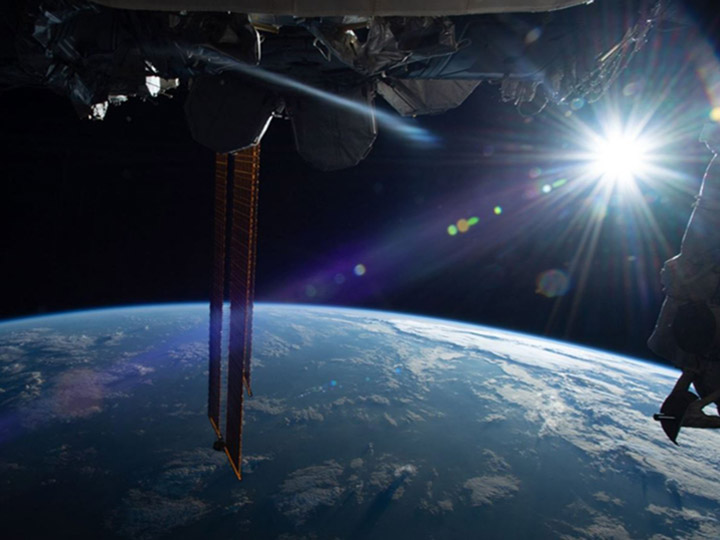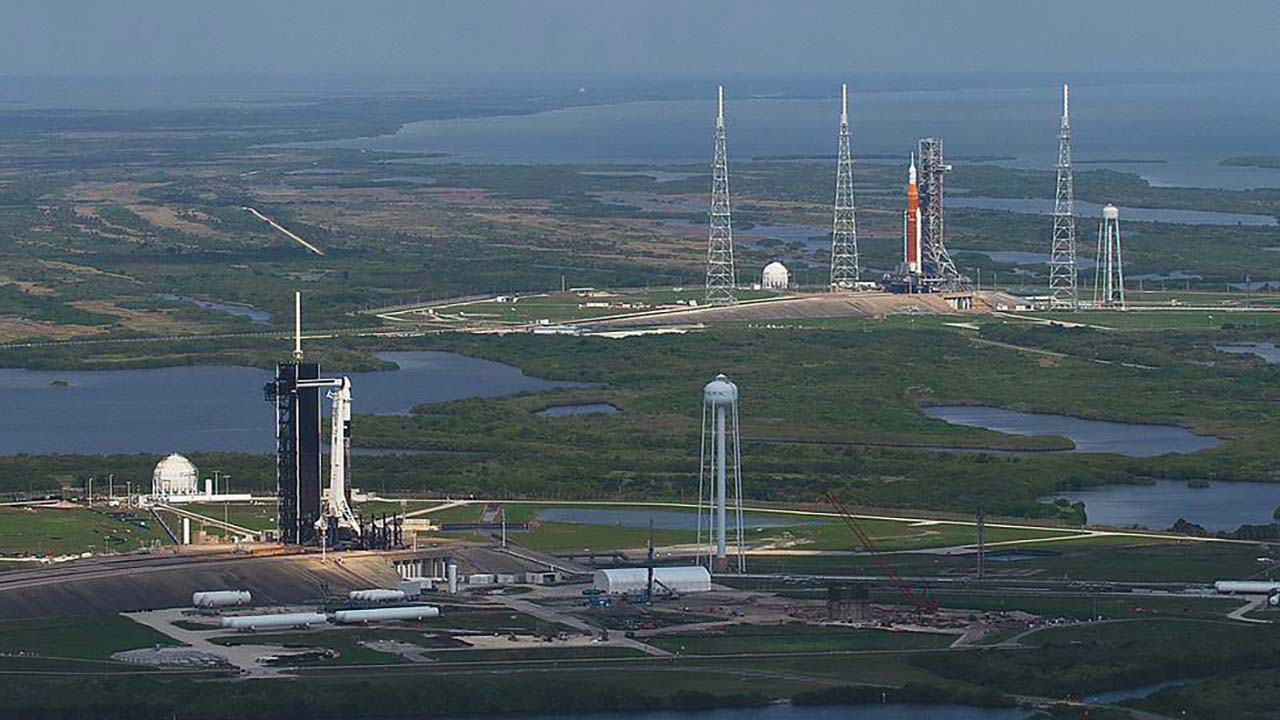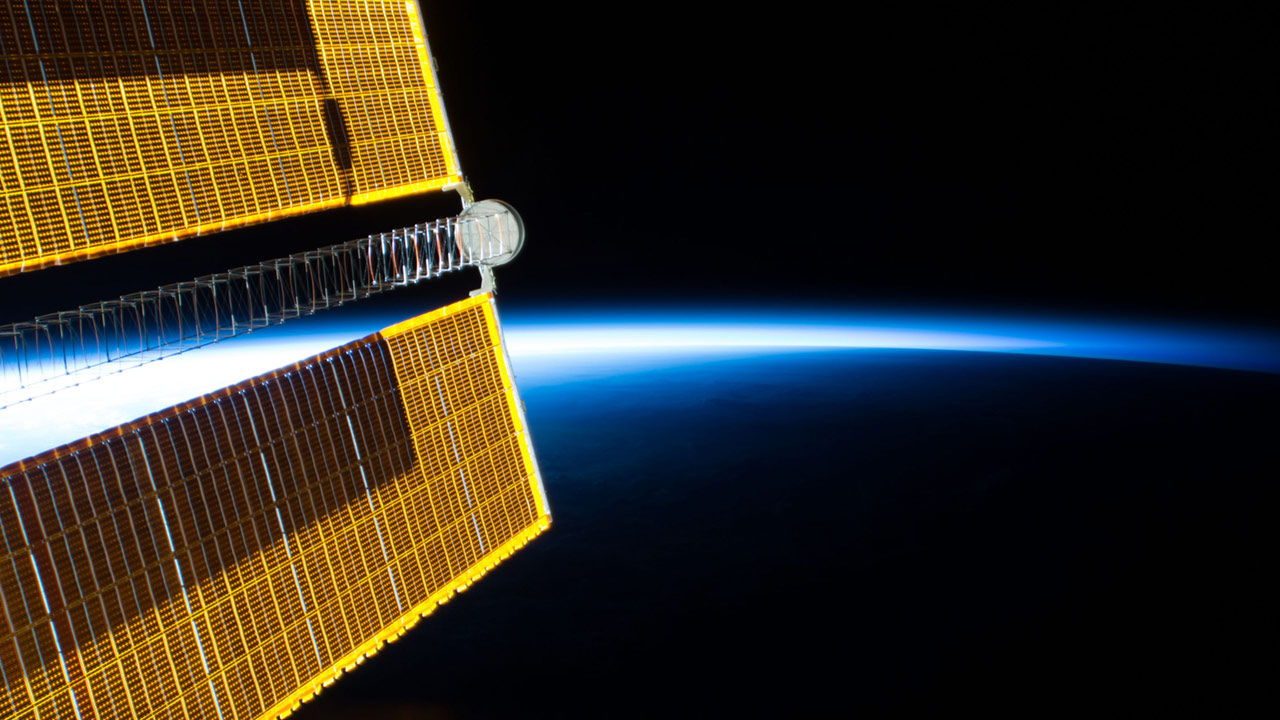KENNEDY SPACE CENTER (FL), June 7, 2019 – Leadership from the International Space Station (ISS) U.S. National Laboratory joined NASA and industry partners at Nasdaq in New York to promote the rise of commercial activities onboard the orbiting platform. The ISS National Lab plays a pivotal role in enabling private-sector research on the space station, paving the way for the industrialization of low Earth orbit. From Fortune 500 companies to innovative startups and the growing number of commercially operated facilities on the ISS National Lab, the space station is being utilized in novel and unique ways that demonstrate a tangible return on investment for American taxpayers. The ISS National Lab, in partnership with NASA, is driving demand for space-based research and development and a robust economy in low Earth orbit.
While at Nasdaq to highlight commercial activities onboard the space station, NASA led a news conference to discuss the agency’s long-term goal of achieving a sustainable marketplace within low Earth orbit. The ISS National Lab continues to push the boundaries of basic and applied research and development on the space station, and more than 55% of the total ISS National Lab research pipeline represents private-sector payloads (since FY 2012). Through its cooperative agreement with NASA, the ISS National Lab receives no less than 50% of the research allocation from visiting vehicles funded through NASA’s Commercial Resupply Services contract. Additionally, the ISS National Lab is responsible for 50% of the U.S. research allocation on station and 50% of astronaut crew time dedicated to science. The ISS National Lab is projecting to eclipse its research allocation and hardware capacity during 2019, demonstrating an increased desire for researchers to leverage the orbiting laboratory. NASA’s new initiative supports commercial and marketing activities that compliment private research and development efforts sponsored by the ISS National Lab.
“We are privileged to join NASA and our industry partners at Nasdaq as we collectively celebrate the rise of commercial utilization and demand generation onboard the space station,” said ISS National Lab Chief Executive Officer Joseph Vockley, Ph.D. “The ISS National Lab will continue to facilitate basic and applied research and development on the ISS, which will lay the foundation for important scientific and technological breakthroughs that will feed the industrialization of low Earth orbit and promote a sustainable space-based economy in the future.”
In recent years, more than 70% of payloads launched to the ISS National Lab represent projects from private industry. Additionally, 14 commercially operated facilities are currently operating onboard the ISS National Lab, with additional facilities slated to launch this year. These trends demonstrate the value of and increased demand for conducting research and development on the space station. Furthermore, the amount of external, non-NASA funds invested into ISS National Lab research since 2012 is approaching $200M. The ISS National Lab is actively engaged with more than 350 private industry partners, including research customers, commercial service providers, and space investors, all of whom recognize the power of leveraging the unique environment of the orbiting laboratory for valuable research and development to benefit life on Earth.
For more information about the private companies doing business on the ISS National Lab and to learn more about the ISS National Lab’s broad research portfolio, please visit www.ISSNationalLab.org.
Media Contact:
Patrick O’Neill
(321) 480-1054
[email protected]
# # #
About the International Space Station (ISS) U.S. National Laboratory: In 2005, Congress designated the U.S. portion of the ISS as the nation’s newest national laboratory to optimize its use for improving quality of life on Earth, promoting collaboration among diverse users, and advancing science, technology, engineering, and mathematics (STEM) education. This unique laboratory environment is available for use by non-NASA U.S. government agencies, academic institutions, and the private sector. The ISS National Lab manages access to the permanent microgravity research environment, a powerful vantage point in low Earth orbit, and the extreme and varied conditions of space.
# # #







